Productivity has always been high on the list of priorities of businesses for an obvious reason. However, achieving high productivity has varied over the years. 2021, for example, has its own set of pandemic challenges that business owners have to overcome in order to stay productive.
One way to maintain productivity is to use business apps. These apps, better known as productivity software help owners and employees to perform better on a daily basis. The 9 best productivity apps for 2021 will help in everything from e-mail management to time tracking.
RescueTime
![]()
When it comes to time tracking software, RescueTime is among the top picks of 2021. The fully automated time tracking software app assists people in monitoring the time they spend across activities and tasks.
By using RescueTime, you can monitor online and offline computer activities. The goal of this monitoring is to be able to analyze how much time is spent on distractions and what their exact nature is (e.g. frequent phone calls and long meetings).
Once you compare productive and unproductive days, it will be easier to see which processes are hurting the company’s productivity. As an extra perk, RescueTime works just fine on iPhone and you can access your files from all devices.
Blink
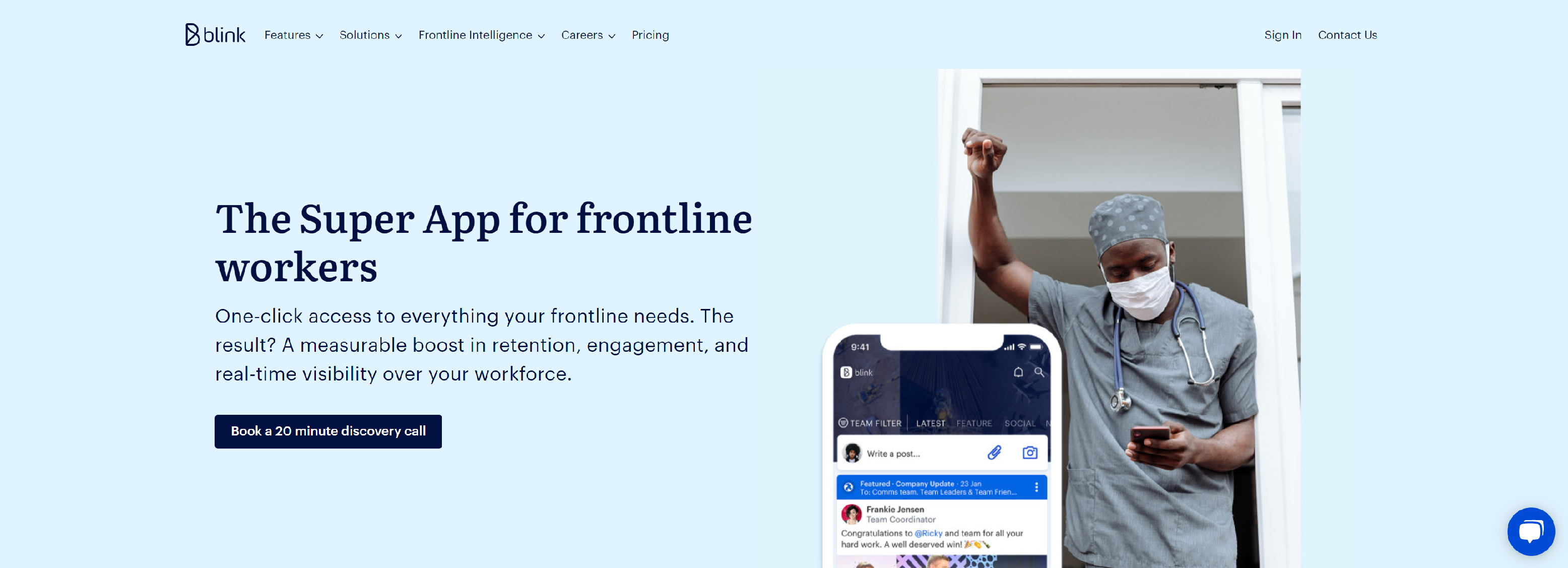
If you’re looking for a solid employee engagement platform that features a file sharing option, then look further than Blink. As its name suggests, this app allows you to every employee on a daily basis in the blink of an eye.
Blink is especially useful if your firm has people working from home. Blink Feed is ideal for such “deckless” workers to interact with other employees, sharing updates, attending training sessions, and creating surveys or polls.
The app fosters collaboration by allowing your staff to form Teams that include clients as well. As a result, sharing documents and workflow with clients is significantly improved as companies merge in a virtual space to share ideas, files, and energy.
ProofHub
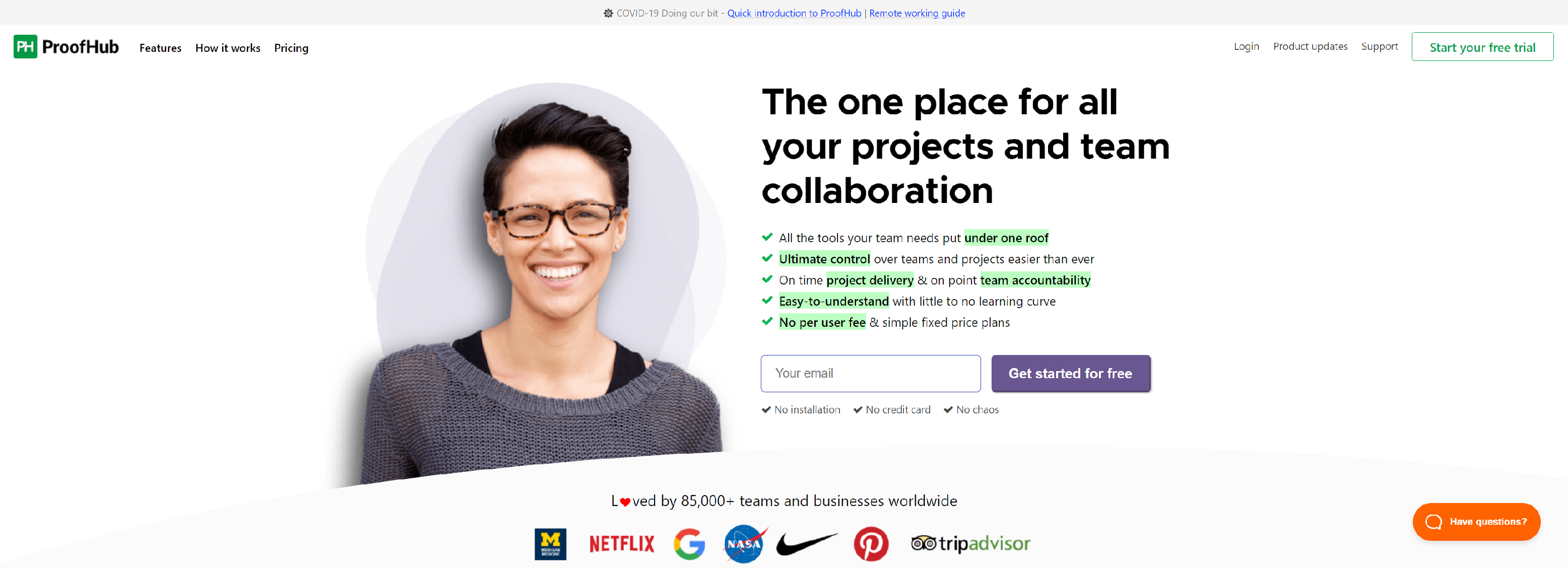
The next productivity app on our list is ProofHub. This multiple-purpose app is intended for all sorts of entrepreneurs, from freelancers to corporative executives. By using ProofHub, folks can plan, organize, proof, and deliver projects faster and in a smarter way.
The reason behind ProofHub’s popularity is the multitude of functions it offers. There is a chat, a discussion board, a Gantt chart, a Kanban board, custom reports, and roles, notes, timesheets, etc.
Essentially, the app has all the tools a growing company requires, so ProofHub is fairly popular with startups. Teams who adopted the app saw shorter project delivery times even during the trial period that included all basic and advanced features.
Google Drive
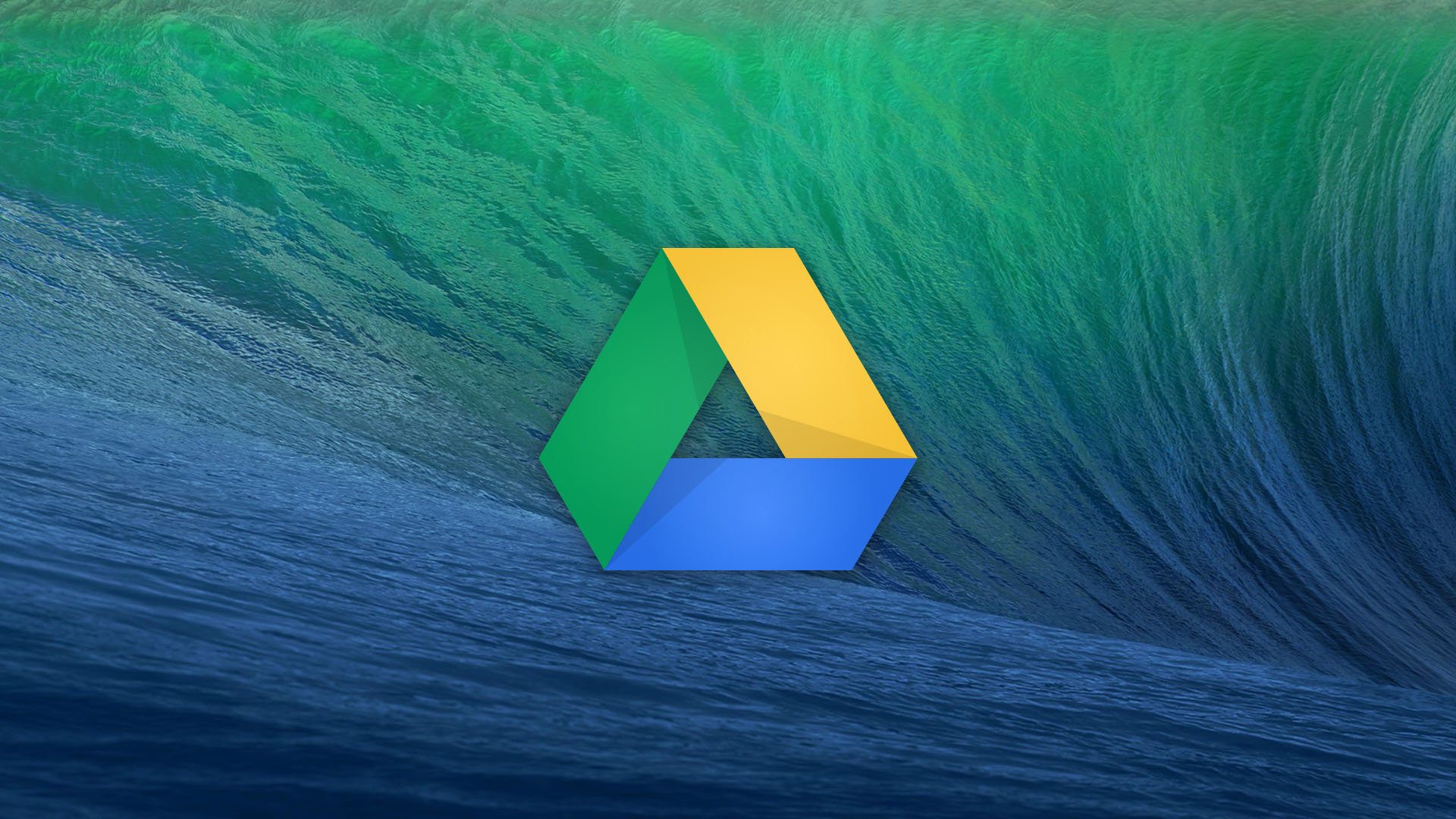
Few people see Google Drive as a productivity app but it really is so. The file storage system also helps users synchronize data. Developed by Google back in 2012, Google Drive is free to use (which we often forget and take the service for granted), it allows millions of users to back up files securely, and it makes it easy to share files with coworkers and/or friends.
This type of cloud storage “for the masses” transformed the way we store, edit, and share files. Now, this can be done on the go, as we needn’t have a terabyte of memory to store work and personal files on our laptop.
Mind you, we should know the difference between Google Docs and Google Drive. Namely, the former is a web-based document management app that is used for creating and editing documents online. G-Drive, on the other side, is solely used for storing files that were written both online and offline.
Hootsuite
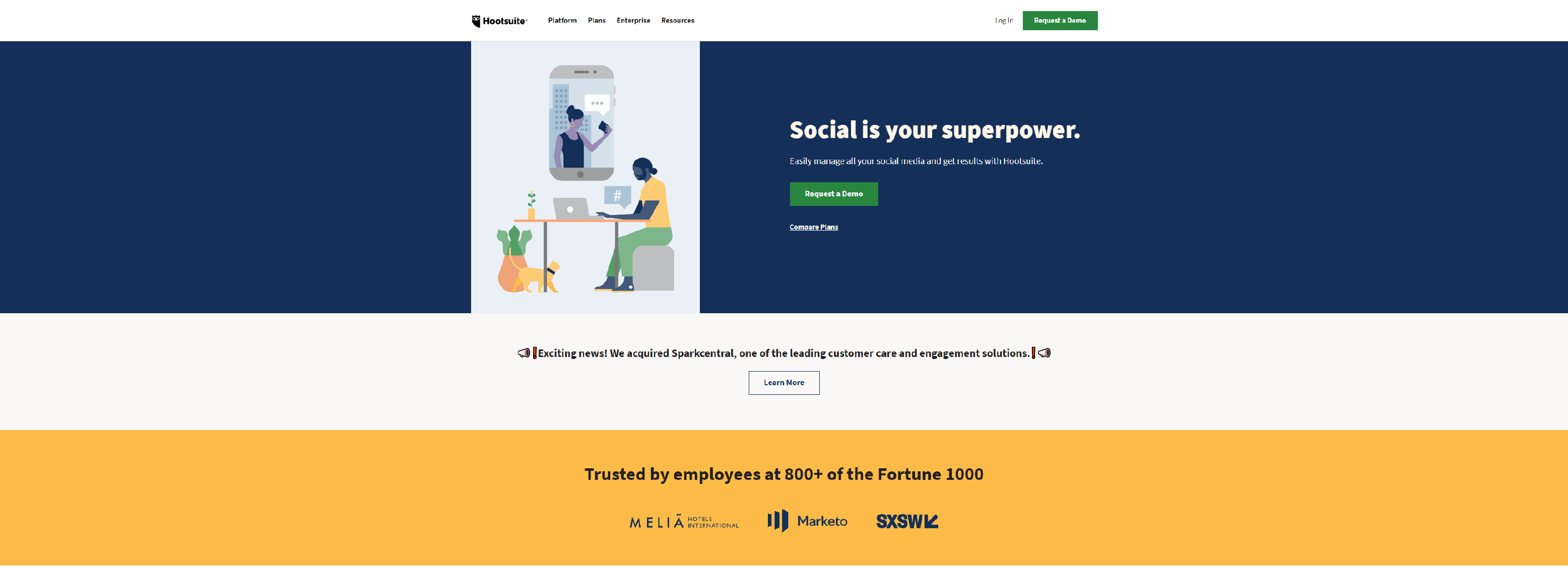
One of the most widely used social media management platforms, Hootsuite allows you to manage multiple networks from a single place, i.e. a dashboard.
The app is popular among marketers and marketing teams since it enables them to track and manage social media activity across several platforms.
Created by Ryan Holmes in 2008, Hootsuite is especially useful for scheduling and reporting on social media content. For instance, it allows marketers to automatically schedule posts not on one but on multiple platforms simultaneously! With Hootsuite, curating social content is a walk in the park.
QuickBooks
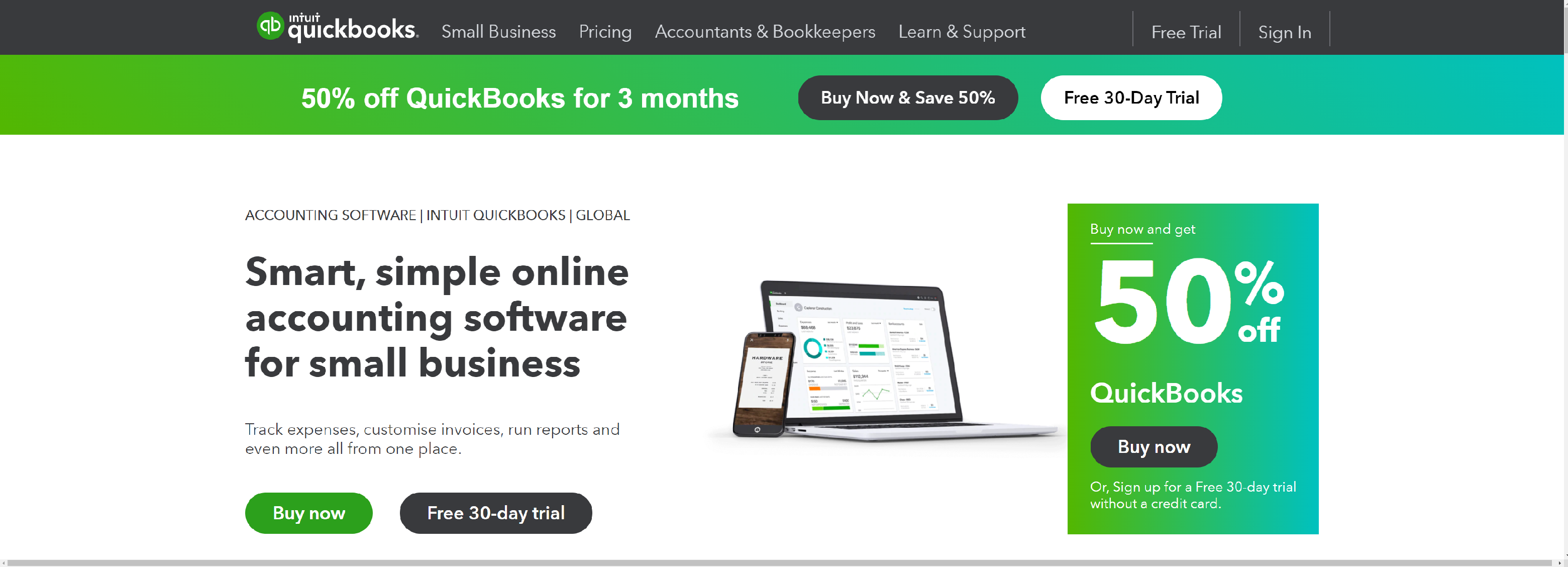
QuickBooks is both a productivity app and an accounting solution. In this sense, it is especially appealing to small business owners and accountants. The area in which QuickBooks eases doing business is drafting invoices, financial reports and their monitoring, tracking expenses, bank reconciliation, etc.
Companies that install the app can count on easier managing of sales. Moreover, QuickBooks helps keep track of bills and expenses, providing you with frequent reports about how your business is doing financially.
Last but not least, the productivity app simplifies the way you calculate and pay taxes. Not only is QuickBooks easy to use but it’s fairly inexpensive. However, if you are looking for alternatives, try Sage or FreshBooks.
OnePager Pro
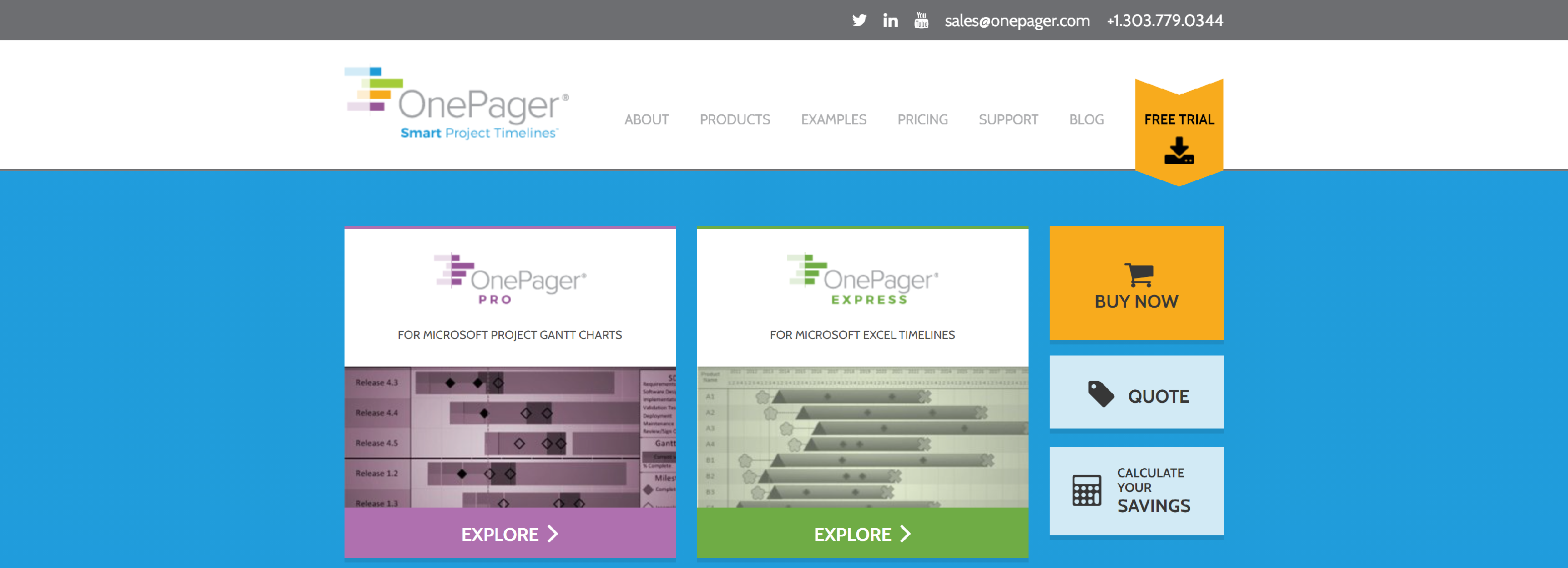
Gantt chart software is popular nowadays but OnePager Pro is also a timeline application. This app empowers project managers, as well as their collaborators, to convert spreadsheets and all types of files into clear summary graphics within seconds.
The biggest advantage of OnePager Pro is the ability to standardize project presentations, thus making them easy to export. As the result, this boosts the accuracy of project reporting and it ensures that project reports are consistent, as well as being informative.
In a world where convincing pitches have become imperative, it’s important to build a solid project presentation with Gantt charts and timelines. OnePager Pro is the ideal tool for this purpose, as it offers a data-driven and dynamic interface to manage projects.
Slack

We’ve all heard of Slack but the app was slacking in popularity in recent years. However, this cloud-based team collaboration software is heavily present in 2021. Namely, Slack is still one of the best apps that links people with information with only one goal in mind: productivity.
Apart from standard features, such as time messaging, a powerful search engine, and file sharing, Slack boasts the ability to integrate with almost all apps already in use. Companies that use Slack almost always stay within the projected budget and pre-set deadlines.
The aforementioned ProofHub is perhaps the best alternative to Slack but it all really comes down to personal preferences. Other productivity apps that roughly fall within the same category include Microsoft Teams, Fleep, and Chanty.
Any.do
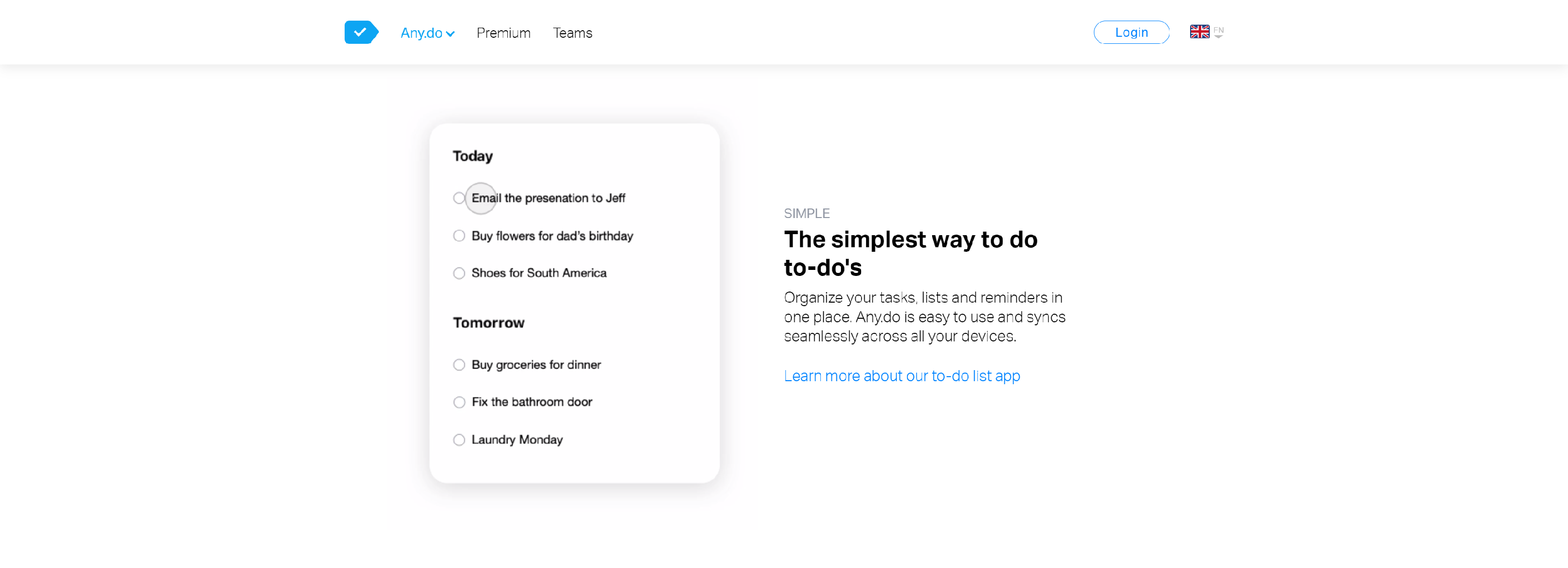
Professional always like to do more in less time but this often an unrealistic goal. However, with Any.do it becomes easier to keep track of tasks, reminders, and to-do lists, so they neatly follow one another. This increases the company’s workflow, syncing it seamlessly across all your devices.
The way Any.do achieves this is by assigning different colors to different tasks, making it easier to organize them and more importantly, prioritize tasks. Since they know which tasks are urgent and which tasks can wait, employees can focus on what’s really important.
As the final benefit, Any.do syncs with Google Tasks. The integration allows professionals to easily turn email threads into actionable items. These are then automatically synced to cross-platform applications used by Any.do.
Business productivity apps are getting better by the day. The year 2021 will witness the rise in popularity of some well-known apps but other, classic apps will remain popular. Essentially, the more time-saving and easy-to-use an app is, the more popular it is going to be in 2021.